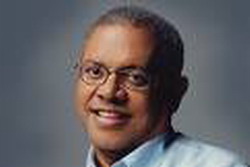Pablo Milanés: Almost always I fall in love with the last song
- Submitted by: admin
- Arts and Culture
- Music
- 09 / 22 / 2007

The work of Pablo Milanes a singer and composer travels through the long way of the rivers, spilling nostalgias and hopes.
Is your work with the son a responsible search or simple inspiration?
I would tell it is an influence I had since I opened my eyes and that goes out spontaneously. I am from Bayamo and that sound world got inside my skin. You can see this, since I have made rock and other types of music and I always put son in it. That is why I consider myself a sonero.
Tell me about fillin in your work ..
Regarding definitions I am not very clear about it, but you create something and you dont have a historical sense when you did it. In 1962, when I entered in the composition world, I was totally influenced by fillin and that is normal; I was a young man influenced by José Antonio Méndez, Portillo de la Luz and others.
That influence was in my way of composing, in my way of singing; even though it is logic to have the renovation impulse young generations always bring and I though I could do different things from my point of view. Then, all these thoughts were recorded in En mis 22 años.
Pablo it has been said that this song recollect all your anxieties, it was a kind of breaking and some musicologist consider it the bridge between the fillin and the Nueva Trova.
It could be true, but I didnt do it with that intention, simple al my searches were placed in that song, when I had developed some maturity in composition.
What did the fillin movement meant to you?
Filin meant a lot to me, because in the 50s and 60s there was no music with such a support in Cuba. The filin, its composers, recollected with a modern sense everything was needed the musical sphere, in literature; very expressive songs, with a lot of feeling, with real taste in poetic and harmonic.
Everything I did in those first years I did totally under the influence of fillin movement. However, even in those years I wanted to do something different.
Now that we are talking about those first compositions, it comes to my mind Tú mi desengaño (You my disappointment). Is that song coming from a love frustration?
No, nothing like that. I just took a very common topic in those years: the defiance of men due to some attitudes of their partners; dont forget that I was also victim of that time.
Pablo, in your songs there is a lot of love; I see you as a constant lover. Am I wrong?
I am a normal person and everything that happens to the rest of the world happens to me as well: I suffer, enjoy love, live it and much more as people can life in a society like ours where the feelings and the spiritual life can completely be showed.
When it is time to sing, to compose it is not the same, because I like to express love with its complexities and I am not that optimistic then. Because of that I wrote Para vivir, Mírame bien and several other numbers where I present the contradictions; topics that are not very common, because many authors prefer to sing to nice things.
I disturb you with another question: Which songs would you rescue from forgiveness?
Almost always I fall in love with the last song, it is the one I enjoy the most, unfortunately with time I burn the other ones in concerts and they do not provoke the emotions a new song can provoke.
Always full of renewal ideas, of projects, the author of popular songs such as Yolanda, Años or El breve espacio en que no estás continue to sing life. In his big agenda there are new scenarios where he establishes friendship bridges that get us closer to other peoples.
Source: By Maria del Carmen Mestas, CubaNow
Comments